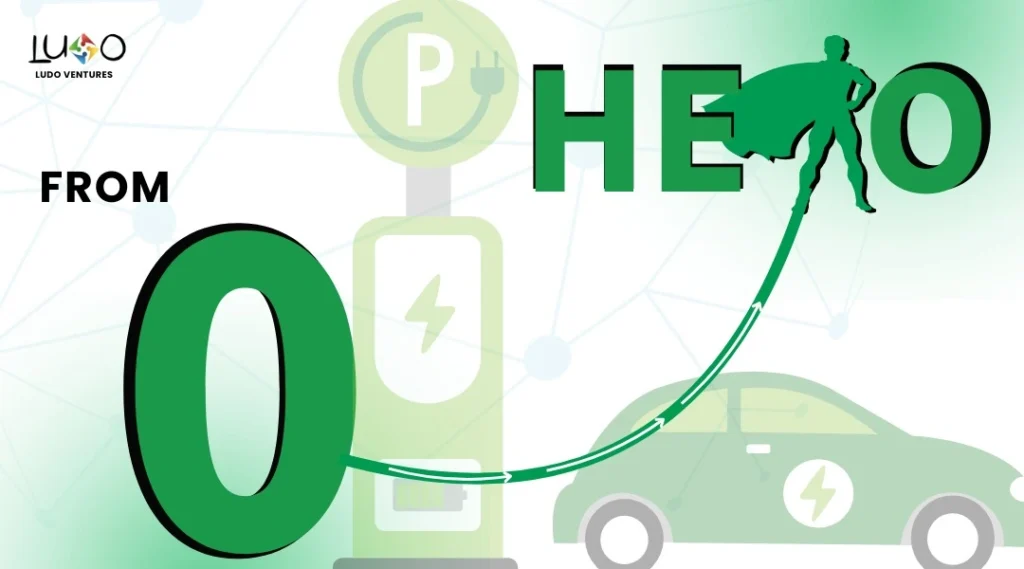In the fast-evolving landscape of automotive technology, EVs have emerged as the mask of a greener, more sustainable future. With advancements in battery technology, charging infrastructure, and consumer awareness, the global automotive industry is witnessing a remarkable passion in electric auto sales. This article delves into the growing rapidly trend of electric vehicles, exploring its benefits, driving factors, and the transformative impact it’s making on the automotive market.
Electric auto market size and growing trends?
The electric vehicle market is on a fast track!
- Market Boom: Estimates suggest the global electric vehicle market was worth a cool USD 255.54 billion in 2023, and is expected to zoom past USD 2.1 trillion by 2033 – that’s a growth rate of over 23% per year!
- Asia Pacific Leads the Charge: This region is the undisputed king of electric vehicles, holding the biggest market share in 2023 and likely to maintain its lead with a projected CAGR of over 23% – that’s even faster than the global average! China is expected to be the shining star here, followed by India and Japan.
The passion of Electric Vehicles:
-
- A ideal Shift: EV’s are revolutionizing the automotive industry, with sales experiencing exponential growth in recent years.
- Global Adoption: From North America to Europe and Asia-Pacific, nations worldwide are embracing electric mobility to battle climate change and reduce faith on fossil fuels.
- Market Trends: Analyzing the current market trends reveals a valued increase in the production and sales of electric vehicles across various segments, including passenger cars, commercial vehicles, and even two-wheelers.
Driving Forces Behind EV’s:
-
- Environmental Consciousness: Growing concerns about air pollution and climate change are driving consumers and policymakers alike to favor cleaner transportation optional.
- Technological Advancements: Breakthroughs in battery technology have led to improved range, performance, and affordability of electric vehicles, making them more attractive to a broader audience.
- Government Initiatives: Subsidies, tax incentives, and stringent emissions regulations are incentivizing both manufacturers and consumers to transition towards electric mobility.
- Infrastructure Development: The expansion of charging infrastructure, including fast-charging stations and home charging solutions, is addressing range concerns and facilitating the widespread adoption of electric vehicles.
Benefits of Electric Auto Sales:
-
- Environmental Impact: By reducing greenhouse gas emissions and minimizing air pollutants, ev’s play a important role in reduce climate change and improving air quality.
- Energy Efficiency: Electric vehicles are natural more energy-efficient than their internal combustion counterparts, resulting in lower fuel costs and reduced energy consumption.
- Economic Growth: The transition to electric mobility promoting innovation, creates job opportunities, and stimulates economic growth in industries related to electric vehicle manufacturing, battery production, and renewable energy.
- Public Health: The widespread adoption of electric vehicles leads to decreased noise pollution and promotes public health by reducing harmful emissions that contribute to respiratory illnesses and cardiovascular diseases.
- Energy Independence: By utilizing renewable energy sources such as solar and wind power for charging, electric vehicles contribute to reducing dependence on imported fossil fuels and increase energy security.
Overcoming Challenges:
-
- Range concerns: Although advancements in battery technology have expanded the driving range of electric vehicles, addressing range concerns remains a critical challenge that requires further infrastructure development and consumer education.
- Cost Considerations: While the long-term operational cost of EV is lower than that of conventional vehicles, upfront purchase costs and battery replacement expense may still occur as a obstacles to adoption for some consumers.
- Charging Infrastructure: The need for a muscular and accessible charging infrastructure is important to support the widespread adoption of electric vehicles, requiring significant investment and collaboration between governments, utilities, and private entities.
Future Outlook:
-
- Market Expansion: The ev market is poised for continued expansion, driven by ongoing technological advancements, supportive government policies, and shifting consumer preferences.
- Innovation and Competition: quick competition among automakers and advancements in electric vehicle technology are expected to result in further improvements in performance, affordability, and design.
- Sustainability Initiatives: Automotive manufacturers are fast integrating sustainability into their business models, with a focus on reducing carbon emissions throughout the entire lifecycle of electric vehicles, from production to disposal.
- Electrification of Transportation: Beyond passenger cars, the electrification trend is extending to other modes of transportation, including buses, trucks, and even aircraft, paving the way for a more sustainable future of mobility.
As you have seen the EV market size in rapidly growing in numbers, so this is the right time to enter in this industry before its too late: Join Ludo Ventures Electric Vehicle Community and be the part of more than 500 people like you.
For more: Go to LUDO
Conclusion
As the automotive industry undergoes a Earthquake shift towards electrification, the rise of ev’s represents not only a technological advancement but also a transformative leap towards a cleaner, more sustainable transportation ecosystem. With benefits ranging from environmental stewardship to economic prosperity, electric vehicles are poised to drive us towards a brighter, greener future on the roads ahead.
